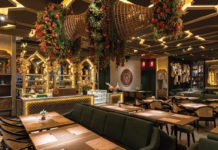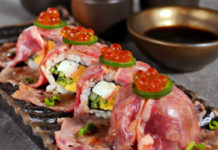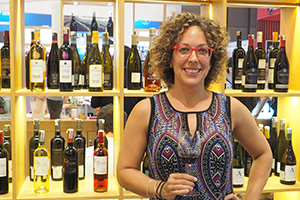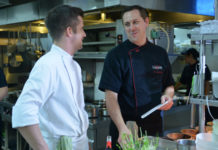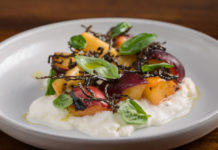Kristen Araoz Gridley
Q: What is it about wine that made it your passion?
A: From the beginning, wine just spoke to me differently than other drinks you just would order in a bar – wine is more than that. It is so interesting to me how wine is different. Every glass is a different experience for everyone; a very personal experience. A glass of wine is a different glass of wine at the beginning than it is at the end, where vodka is just vodka. Your vodka soda is going to taste the same, if not a little watered down by the time you are done with it. Wine just changes through every experience you have. Wine changes with different regions and climates where grapes are grown. You can taste different varietals and each class is going to be different. It was always intriguing to me how a simple beverage can be such a personal lifetime journey – there is no way that you will ever experience every glass of wine that is out there.
Q: What would be your advice to someone new to wine – where would be a good place to get started?
A: Talk to people that do drink wine. Whether it’s a friend or a sommelier, a properly trained wine expert should ask the consumer what they like to eat, what they like to drink. Do they like sweet things? Sour things? Tart fruity things? From there they would be able to steer them in a good direction of where to start. Another fun thing to do is to have a wine party with friends. Instead of going out, have everyone go to a wine store, pick a bottle of wine each and try two or three different things. Then you can talk about it and see what everybody likes and what they don’t like. You can easily go online and download wine tasting at home, or wine tasting 101 guides to get an idea of what to look for. Then once you get familiar with the terms and with the smells and tastes that are all associated with wine tasting you start to notice them on your own.
Q: What does it mean to be a wine ambassador and what is the most rewarding part of your job?
A: As a wine ambassador, our focus is on education. We are the resident expert on certain brands. I am particularly passionate about education and making sure that the staff at a restaurant or hotel know what they are selling. For example, when I was a server in high school or college and people would always ask, “What red wine do you recommend?” I just didn’t know. Today after I talk with the staff, they have actually tried this wine before and know which dishes it pairs perfectly with – they may even remember that there were some toasty oaky notes or maybe the flavour of bright red berries that were present. Generally staff can tell you about the food menu, but they should also be able to tell you about the wine menu.
Q: So tell me a little bit about your brand, Beringer.
A: Beringer is the biggest US brand that we have here in Southeast Asia. Beringer is one of the oldest wineries in Nappa Valley and is its oldest continuously operating winery. It stayed open during the years of prohibition when the sale of alcohol was illegal because it produced altar wine. When no one could produce or sell alcohol, the sacrament wine for churches was still allowed to be produced. The company was founded by two German immigrant brothers, who really came to California during the gold rush, but saw the beautiful land and with it, the possibility of making great wine. Beringer to this day is a California wine icon and they still say they want to stand for American optimism and the American dream shared by its founders.
Q: What do you believe the role of wine is in the culture of Southeast Asia today?
A: I think that wines are getting more press, popularity and interest here. A lot of this has to do with the younger generation that has either lived in Europe or in the US where wine is produced and consumed on a daily basis. People are seeing that wine is not just for special occasions, or just for the elite, or just for the rich. Everyone can drink wine; everyone should drink wine! I think that it gets carried over from the old days where wine was fancy and only for the elite. Sometime wine definitely can be – there are certainly special occasion wines! But there is now room for wines from every region because every region has its own growing capacity. Every region has a different climate, different soil, different wine-making styles, and they should all be given respect. Think about your food. You don’t eat the same thing every day. That would be boring! The same thing goes for wine. If you only have wines available to you from Australia or France, sure there are great wines there, but you are going to find different characteristics in wines from South America, or wines from New Zealand.
www.beringer.com




